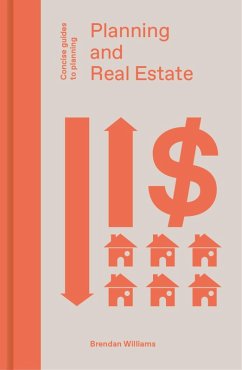Real estate development is a highly regulated, high-value industry: this book examines its efficiency, its role in shaping the built environment and its relationship with planning and planners. It considers issues such as the role of the government and property markets and whether it is valid to blame planning systems for dysfunctional housing markets. It also provides a useful grounding in development companies' decision-making and how the property-development process, financing, and pricing systems operate in a market economy. It explains the UK's Development Led system and Development Appraisals, before comparing various alternative international systems to see how they treat, or prioritize, real estate and development interests. It asks which policies might lead to high levels of speculative activity and if so, whether this is sustainable, in political, economic, or environmental terms. It looks to the future to see whether the planning system can prevent future property bubbles and identifies key lessons and implications for planning and property markets.
Dieser Download kann aus rechtlichen Gründen nur mit Rechnungsadresse in A, B, BG, CY, CZ, D, DK, EW, E, FIN, F, GR, HR, H, IRL, I, LT, L, LR, M, NL, PL, P, R, S, SLO, SK ausgeliefert werden.









